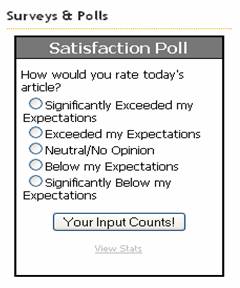2 in 3 Americans Concerned over Personal Health Info
This year has seen a record level of company
disclosures associated with consumer personal
information and identity theft. Typically involving
social security or banking account numbers being
exposed, the common perception has been focused
toward financial institutions and their affiliated data
partners as the prime culprits.
Most consumers are largely unaware of their privacy
rights related to medical records privacy and their
protection against identity theft and social security
number fraud.
Yet, two thirds of Americans are concerned over the
privacy of their personal medical records according to a
recent national survey conducted by Forrester Research.
No doubt, fueled by recent high profile stories where
investigative reporters have uncovered instances of
private medical records being dumped in trash
containers available to anyone passing by.
No wonder, identity thieves often go "dumpster diving"
for information they can use to steal your identity,
your credit, and your money.
Case in point, a Lubbock, Texas medical facility
evidently discarded patient documents into dumpsters
behind their offices without shredding them first. The
types of personal information available to any would be
identity thief ranged from social security numbers,
addresses, to even specific diagnosis. Just enough
personal information to fill out a credit card application
or attempt to get "instant credit" under the victim's
name in most major department stores.
Or, how about in Detroit where medical records were
found 10 days ago behind a shopping center by a pedestrian.
Some of the medical information contained social
security numbers (SSN) which could be used by identity
thieves.
And, an un-named hospital that discovered a nurse was
accessing medical records of local politicians and
civic leaders. The nurse was fired, but there was no evidence the
hospital ever disclosed the personal information breach to those
consumers who were exposed.
Further, the personal information of approximately
2,800 Ohio State University Medical Center patients -
including names, addresses, phone numbers, birth
dates, Social Security numbers and why they were
making appointments were posted on the Internet in
April, 2004 as reported by the Columbus Dispatch.
Finally, where the California state Department of
Managed Health Care levied the largest fine for a
privacy violation against Kaiser Permanente Northern
California for leaving sensitive patient information
on a publicly accessible Web site. The names,
addresses, phone numbers and lab results of about 150
patients were posted on a Kaiser site ``for up to four
years'' before a disgruntled former worker blew the
whistle on the privacy breach.
HIPAA, the federal Health Insurance Portability and
Accountability Act, lists 19 identifiers, or pieces of
personal information which are considered "protected"
in a health care setting.
Those include:
- Your Name
- Address
- Date of Birth
- Social Security Number (SSN)
- Diagnosis
- Date of your Appointment
- and more...
HIPAA does not require there to be any notification to
patients whose personal data is exposed to identity
theft due to lax disposal practices.
who can actively demonstrate to your satisfaction
their confidential medical records protection and
disposal practices.
Learn more about your rights to medical privacy
especially related to protection of your billing
information or to file a complaint by calling this
toll free number below:
1-866-627-7748
Lastly, institute a comprehensive credit monitoring and
(PIP) personal information profile scan as an early
warning system to protect you and your family assets
from the damages resulting from identity theft fraud.














